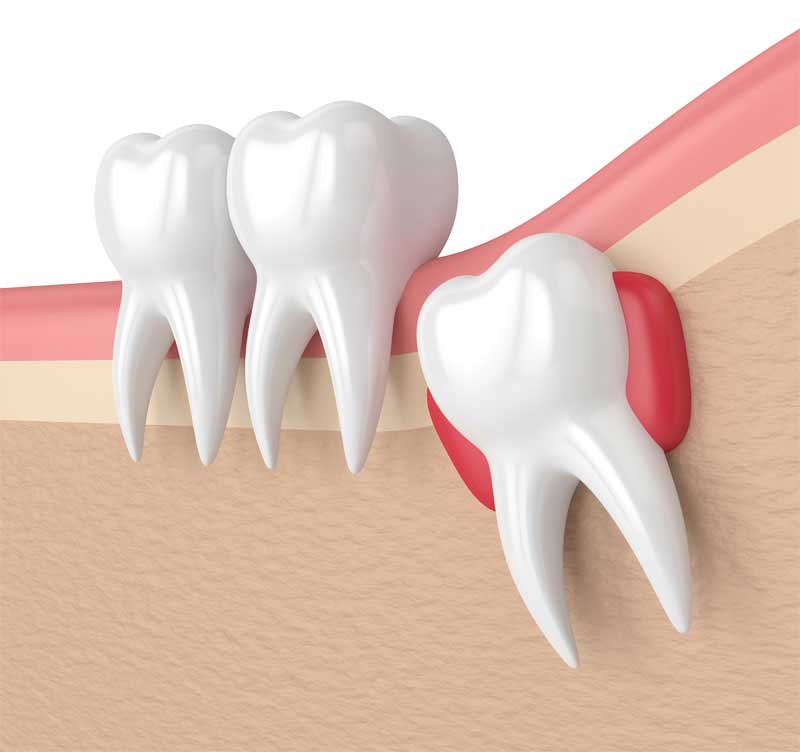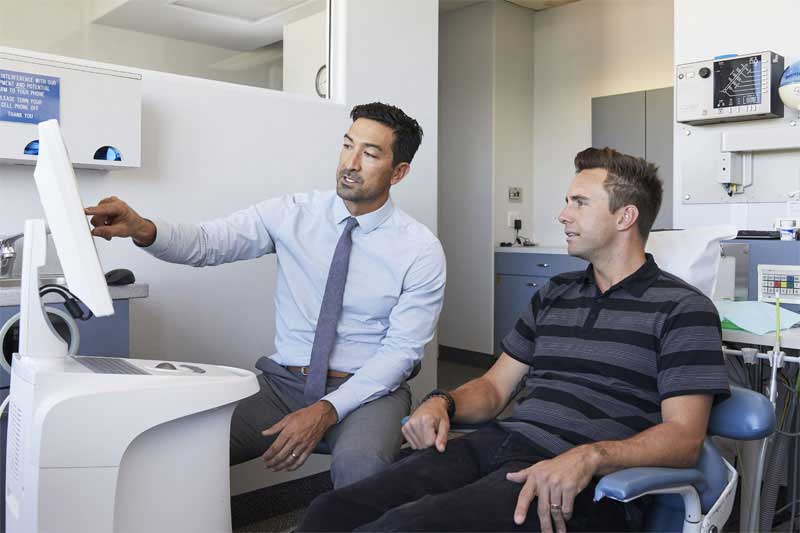
When Wisdom Teeth Should Be Removed
The wisdom teeth are a third set of molars that develop later in life, between the ages of 17 and 25. They commonly need to be removed, and wisdom teeth removal has become like a rite of passage for young adults. For some, wisdom teeth erupt with no problem and don’t need to be extracted. For others, wisdom teeth cause several issues — especially when there isn’t enough room in the person’s mouth.
Your dentist will help monitor the development, eruption, and condition of wisdom teeth, providing you with advice regarding removal, but the following signs might indicate that you need to have yours taken out.
Top Signs Wisdom Teeth Need to Be Removed
1. Pain and Irritation
Wisdom teeth can cause irritation and pain inside the mouth.
2. Trouble Eating
Food easily becomes lodged in and around wisdom teeth, which are difficult to clean.
3. Impacted Teeth
If there’s not enough room in the jaw, wisdom teeth grow at an angle and push against neighboring molars.
4. Cyst Formation
Pockets of fluid called cysts often form in the tissue surrounding wisdom teeth. If this occurs, wisdom teeth and the cysts need to be removed, as they can lead to the degeneration of the jaw bone.
5. Sinus Problems
The roots of upper wisdom teeth can push against the maxillary sinuses, causing pressure, pain, discomfort, congestion, and sinus headaches.
6. Not Enough Room
If wisdom teeth are allowed to erupt in a mouth that doesn’t have enough room, they’ll push against the other teeth, causing them to shift and rub against each other. This affects teeth alignment, spacing, and can also damage surrounding teeth.
7. Cavities
Wisdom teeth are significantly prone to developing cavities, as they’re difficult to keep clean.
8. Inflamed Gums
After erupting, wisdom teeth can create a thick flap of gum tissue where food particles easily become stuck. Gum tissues then become inflamed and eventually harden, a condition called pericoronitis.

Preventative Removal of Wisdom Teeth
Although wisdom teeth sometimes come in without a hitch, a dentist might still recommend having them removed before the roots have fully developed as a preventative measure. Wisdom teeth might not cause concerns right away, but they can be difficult to maintain, causing problems down the road. It’s common to have wisdom teeth removed as a precaution.
If you still have your wisdom teeth or if your child is nearing the age when these final molars develop, we welcome you to schedule an evaluation with Dr. Schaffer at Schaffer Dental Excellence.


